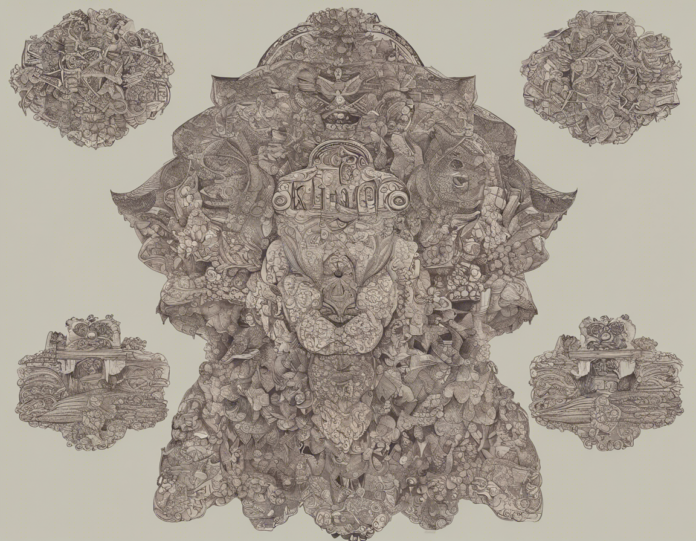Have you ever come across the term Klin Kaara and wondered what it means or how it impacts your life? In this in-depth article, we will unravel the mysteries behind this ancient concept and explore its significance in various aspects. From its origins to its practical applications, we will delve deep into the essence of Klin Kaara and provide you with a comprehensive understanding of this profound philosophy.
Understanding Klin Kaara
Klin Kaara is a term derived from Sanskrit, where “Klin” means impurity or stain, and “Kaara” refers to a cause or factor. Together, Klin Kaara signifies the root cause of impurities or stains that affect our mind, body, and soul. In the context of spiritual growth and personal development, Klin Kaara represents the obstacles and negative influences that hinder our progress towards self-realization and enlightenment.
The Origins of Klin Kaara
The concept of Klin Kaara finds its roots in ancient Eastern philosophies, such as Hinduism, Buddhism, and Jainism. These spiritual traditions emphasize the importance of purifying the mind and soul to achieve a state of inner peace and harmony. According to these teachings, various factors contribute to the accumulation of impurities within us, leading to suffering, ignorance, and emotional unrest.
Identifying the Types of Klin Kaara
In spiritual practices, Klin Kaara is often categorized into different types based on their nature and impact. Some common types of Klin Kaara include:
Emotional Klin Kaara
Emotional impurities such as anger, fear, jealousy, and attachment can cloud our judgment and affect our relationships with others. Addressing these emotional Klin Kaara is essential for mental wellbeing and spiritual growth.
Mental Klin Kaara
Negative thought patterns, limiting beliefs, and self-doubt are forms of mental impurities that create barriers to personal development and self-realization. By recognizing and transforming these Klin Kaara, we can unlock our true potential and inner wisdom.
Physical Klin Kaara
Unhealthy habits, addictions, and poor lifestyle choices contribute to physical impurities that impact our overall well-being. Cleansing the body and adopting a balanced lifestyle are essential steps in overcoming physical Klin Kaara.
Overcoming Klin Kaara
The journey of overcoming Klin Kaara requires self-awareness, mindfulness, and conscious effort. By cultivating virtues such as compassion, gratitude, and forgiveness, we can gradually diminish the influence of impurities in our lives. Various spiritual practices, meditation techniques, and healing modalities can also aid in purifying the mind, body, and soul.
Practical Applications of Klin Kaara
In modern times, the concept of Klin Kaara finds relevance in various fields, including psychology, wellness, and personal development. By addressing the root causes of our inner struggles and transforming negative patterns, we can enhance our mental resilience, emotional intelligence, and overall sense of well-being. Practicing self-reflection, seeking therapy, and engaging in holistic healing methods are effective ways to work on our Klin Kaara and cultivate a more fulfilling life.
Frequently Asked Questions (FAQs) about Klin Kaara
Q1: What are the benefits of identifying and overcoming Klin Kaara?
A1: By addressing and transforming Klin Kaara, individuals can experience greater mental clarity, emotional balance, and spiritual growth. It leads to inner peace, self-empowerment, and a deeper connection to oneself and others.
Q2: How can I identify my specific Klin Kaara?
A2: Self-reflection, mindfulness practices, and seeking guidance from spiritual teachers or counselors can help in identifying the predominant Klin Kaara that affect your well-being. Paying attention to recurring patterns, emotional triggers, and physical symptoms can offer valuable insights.
Q3: Can Klin Kaara be inherited or conditioned through upbringing?
A3: Yes, Klin Kaara can be inherited through familial patterns, cultural influences, and past traumas. Our upbringing, social environment, and life experiences contribute to the accumulation of impurities that shape our beliefs, behaviors, and relationships.
Q4: Are there specific rituals or practices for cleansing Klin Kaara?
A4: Various spiritual traditions offer rituals, ceremonies, and practices for purifying the mind, body, and soul. These may include meditation, chanting, energy healing, yoga, and self-care routines tailored to address specific Klin Kaara.
Q5: How long does it take to overcome Klin Kaara and experience transformation?
A5: The journey of overcoming Klin Kaara is unique to each individual and depends on factors such as self-awareness, commitment, and external support. While some may experience rapid shifts, others may require consistent effort and patience to see significant transformation.
In conclusion, embracing the wisdom of Klin Kaara can lead to profound personal growth, spiritual evolution, and holistic well-being. By recognizing the root causes of our impurities and actively engaging in practices that promote purification and healing, we can unleash our true essence and live authentically in alignment with our higher purpose. Remember, the path to self-realization begins with acknowledging and transcending the Klin Kaara that hold us back from embodying our fullest potential.

